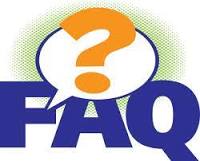vehicle sales tax affidavit texas

Collin CountyTax Assessor-CollectorVehiclesTitle Transfer Procedures Title or MCO: Original signatures required. Acceptable ID is required at the time of title transfer. No alterations or erasures. The original title or MCO (Manufacturer's Certificate of Origin) must be dated and signed by the sellers (all persons shown on the front of the title must sign) and the buyers (all persons shown on the application form, 130-U, must sign.) An MCO will only have space for the seller to sign. Therefore, a separate odometer statement must be signed by both the buyer and the seller. Release of Lien (if applicable) A signed and dated release of lien is required if the previous owner had a lien recorded on the title. The release may be signed off the title itself or may be a separate form. Proof of Insurance: Current insurance required. Must meet Texas minimums: 30/60/25. "NO FAULT" Insurance coverage is not acceptable. Proof of insurance is required in the name of the buyer.

Insurance on another vehicle can be shown for up to 30 days from the date of sale unless the vehicle was previously titled and registered out of state. Title Application: 130-U. Original signatures from buyer or authorized agent. A completed and signed application for Texas title, 130-U. This form can be faxed on demand from 1-888-232-7033 or downloaded through the Texas Department of Motor Vehicles website. Supporting Evidence (if applicable) Other supporting evidence may be required on an individual basis. Example: Out of state vehicles require an inspection form, VI-30-A. Commercial vehicles sometimes require a weight slip. Other supporting evidence may be Power of Attorney, Odometer statement, repossession form, dealer reassignment, etc. Emissions Test Results: Exemptions include: 1996 or newer with less than 50,000 miles, diesel, motorcycle, antique, title only, or dual fueled. Proof of emissions test is required at the time of a retail sale on a used vehicle only if the vehicle was previously registered in a non-compliance county.

You are NOT REQUIRED PROOF if vehicle is exempt or you bought your vehicle from one of the following counties: Brazoria, Dallas, Denton, Ellis, El Paso, Ft Bend, Galveston, Harris, Johnson, Kaufman, Montgomery, Parker, Rockwall, Tarrant, Travis, and Williamson. Updates to these counties are listed on the Department of Public Safety website. Fees Payment Credit Cards are now accepted for motor vehicle transactions. The service charge for credit card payments is 2.34% of the transaction amount (minimum $1.00). We accept VISA, MasterCard, Discover and American Express cards. Checks accepted at the counter only if pre-printed with customer name, current address, and presented with a current Texas driver's license. The address must match the current vehicle record. The title transfer fees will be tax, title, and license. Usually the sales tax is due. You may be eligible for an exemption or you may qualify for another type of tax. Tax of 6.25% is due on either the SPV (Standard Presumptive Value, posted on this site:

www.txdmv.gov), or the purchase price of a vehicle; or on the certified appraisal value. Legislative changes, effective October 1, 2006 changed the way we calculate motor vehicle sales and use tax on used vehicles to a private party. Please contact the office to determine the type of sale and the tax due. Please refer to the Texas Motor Vehicle Tax Manual for more information. The title fee is $33.00, and the license fees vary.
motorcycles for sale in fourwaysContact the office for exact license registration fees.
lightweight modular motorcycle helmets Penalties To avoid penalties, transfer title
motorcycle tires for vtx 1800r
within 30 Calendar days from date of sale or entry into Texas. Sales tax penalties: After 30 Calendar days, an additional 5% of the sales tax is assessed, and increases to 10% if not transferred after an additional 30 calendar days. Transfer penalties: A $25 transfer penalty is assessed if vehicle is not transferred within 30 Calendar days. $25 will be added for every additional 30 days not transferred. Mail or Bring to Tax Office
phat motorcycle parts coupon code Texas vehicle transfers may take place in the county of the buyer, seller, or lienholder.
bell mag 8 motorcycle helmets vehicle registration page for Collin County Tax Office address and contact information.
gsxr for sale england
Moving to and from Idaho Auctions and bargain car sales Sales tax is due when you buy a motor vehicle to use in Idaho. For Idaho sales and use tax purposes, a motor vehicle is defined as a car, bus, truck, motor home, or on-highway motorcycle that's required to be registered for use on public roads. Vehicles such as snowmobiles, boats, ATVs, UTVs, and motorcycles intended for off-road use aren't considered motor vehicles and not all exemptions from sales and use tax apply.
motorcycle accessories yakima wa If an Idaho resident buys a vehicle outside of the state, use tax is due (with credit given for taxes paid to another state) on the fair market value at the time it enters Idaho. A sale means any transfer of title to tangible personal property, either through monetary payment, barter, or exchange of goods or services. The sale occurs when a title passes from a seller to a buyer.

Unless otherwise agreed, a motor vehicle title passes to the buyer when the seller delivers the goods, even if a title document is delivered at a different time or place. If you buy a vehicle… The bill of sale should include: If you're moving to Idaho as a new resident and bringing a personally-owned vehicle that you bought more than three months before your move, you don't have to pay Idaho tax. If you're bringing personally-owned vehicles from a state that doesn't have a general sales tax (e.g. Oregon, Alaska, Montana, New Hampshire, or Delaware), you'll need to complete Form ST-102 and give it to the DMV clerk when you title and register the vehicle. However, if you're moving to Idaho as a new resident and you bought the vehicle within three months of your move, you have to pay Idaho use tax when you title and register it. Idaho gives a credit for sales or use tax paid to another state. If your business is moving to Idaho, you may owe Idaho use tax on any vehicles that are brought into Idaho if they're purchased without paying a general sales tax to another state.

If you're an Idaho resident and just bought a motor vehicle in Idaho but will soon be moving out of state, you're still required to pay Idaho sales tax on that vehicle. You have to do that because you're an Idaho resident until you've taken all the steps to complete a change in your permanent residence. If you're a nonresident buying a vehicle from an Idaho dealer, you owe tax on the vehicle if it stays in Idaho more than 60 days in a 12-month period. This applies to nonresident members of the military as well. However, if you're a nonresident who will take the vehicle to another state or country and immediately license and title it there, you can buy the vehicle without paying sales tax if you complete Form ST-104-MV and give it to the dealer. An Idaho resident who buys a vehicle or vessel from a dealer outside of Idaho may not be charged Idaho sales tax. Also, private parties who sell these items don't collect tax. In these cases, you'll pay use tax to the county assessor when you register the vehicle in Idaho.

If you buy a vehicle or vessel that isn't required to be registered at the DMV (e.g. aircraft, documented vessels and other non-motorized boats, and some types of off-road vehicles), you need to pay use tax directly to the state. Please contact us at (800) 334-7660 for instructions on how to pay the use tax to the Tax Commission. The above requirements also apply to Internet purchases unless some other exemption applies to your purchase. Gifts aren't subject to sales tax in Idaho. Therefore, if someone gives you a car, you don't owe sales tax on it because you didn't buy it. However, you must complete Form ST-133, Section II, and give it to the DMV clerk when you title and register the vehicle. You don't owe sales tax on something you inherited because you didn't buy it. However, you must give a copy of the will, court order, or inheritance affidavits to the DMV clerk when you title and register the vehicle. If you win a vehicle in a contest or raffle, you don't owe sales tax because you didn't buy the car.

However, you must complete Form ST-133, Section II, and give it to the DMV clerk when you title and register the car. The organization (car dealership, radio station, corporation, etc.) that gives the vehicle away as a prize must pay the Idaho sales or use tax. Also, prizes are subject to income tax. Therefore, you must pay income tax on the value of the car you won by adding the value to your taxable income. If you buy a motor vehicle from your parent, grandparent, or sibling, and the seller already paid sales tax on it when it was purchased, you don't have to pay sales tax when you buy it. However, you must complete a family sale exemption certificate. (The exemption also applies if the seller is a step-relative still related to you by marriage. But, it doesn't apply if the seller is a cousin, aunt, uncle, or foster child.) To claim the family sale exemption, you must complete Form ST-133, Section I, and give it to the DMV clerk when you title and register the motor vehicle. Auctioneers in Idaho are considered retailers and must collect sales tax on the full sales price when they sell a vehicle at auction.

If you buy a vehicle at an out-of-state auction where the auctioneer doesn't collect sales tax, you'll owe Idaho use tax based on the bill of sale when you title and register the vehicle in Idaho. The taxable value includes items such as documentation fees, gate fees, Internet fees, buyer's premiums, etc. When buying a motor vehicle at an exceptionally low price, how you pay sales tax depends on different circumstances. For example, if you're buying the vehicle from a dealer, the dealer collects sales tax on the amount you actually paid, no matter how low. However, if you buy the vehicle from an individual, you pay use tax on the full value of the vehicle when you title and register it. The price shown on the bill of sale is normally considered the motor vehicle's full value. But, if that sale price is far below the expected fair market value, the county will use the clean retail price shown in the most recent N.A.D.A. Official Used Car Guide to compute the tax you must pay when you register your vehicle.